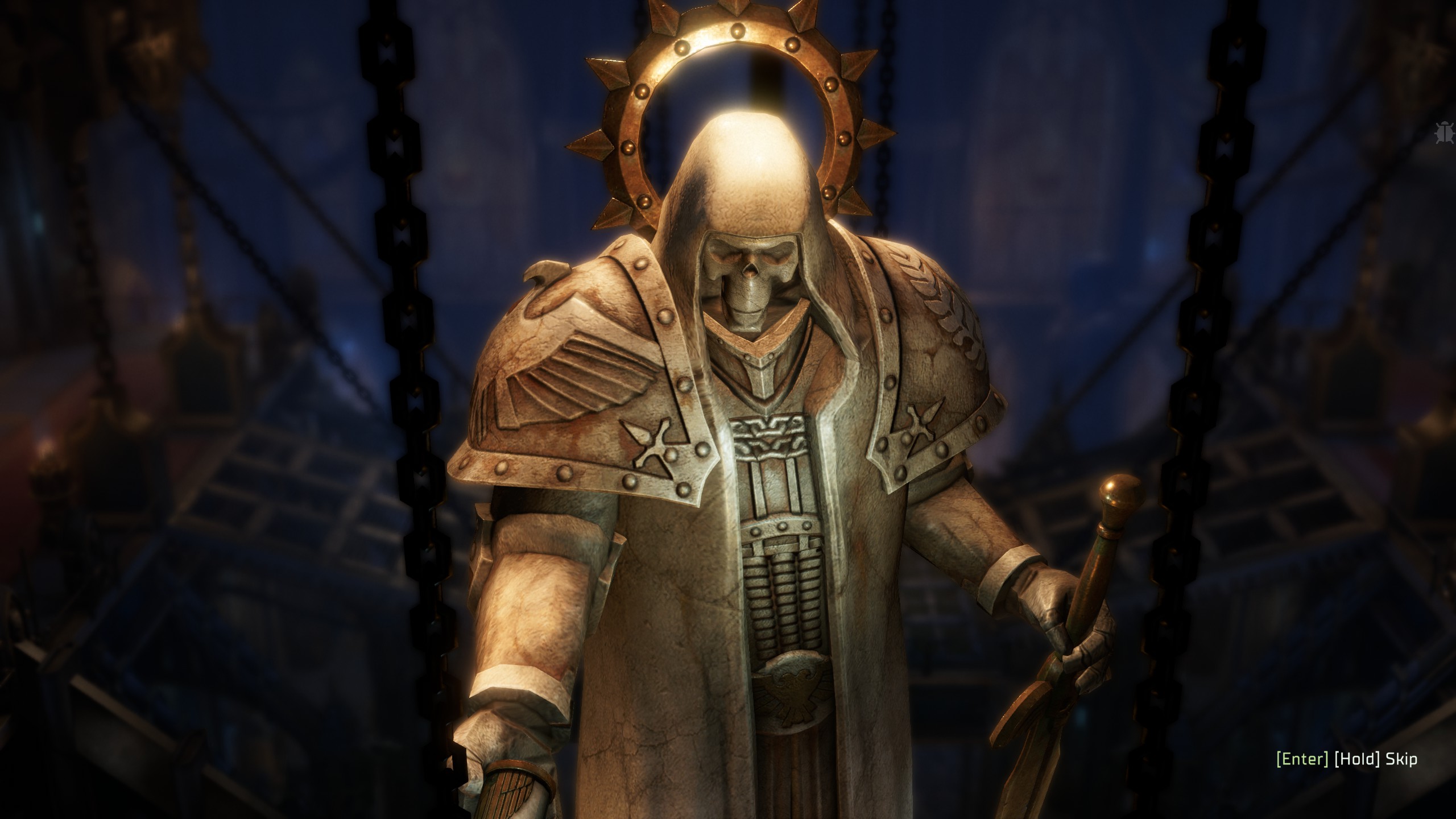
What is it? Mass Effect but isometric, dystopian, turn-based, and not that much like Mass Effect.
Release date: December 8, 2023
Expect to pay: $40
Developer: Owlcat
Publisher: Owlcat
Reviewed on: Windows 11, Ryzen 9 5900X, 32GB RAM, RTX 3080
Multiplayer? Online 6-player co-op
Link: Official website
We've just defeated a cult, foiled a plot, saved a world. A bureaucrat says the triumphant parade has already been organized. We'll get to ride a battle tank, and halfway it'll stop and a small crowd will mob us. It's all stage-managed. The mob has been carefully vetted, the bureaucrat explains. "Members of the military. Young people, attractive and physically fit. A few healthy children."
At the end of the parade the heretic leader's body will be burned on a pyre. The bureaucrat asks if we'd mind handing the flamer to the governor for this part, as it would be a real PR coup for him.
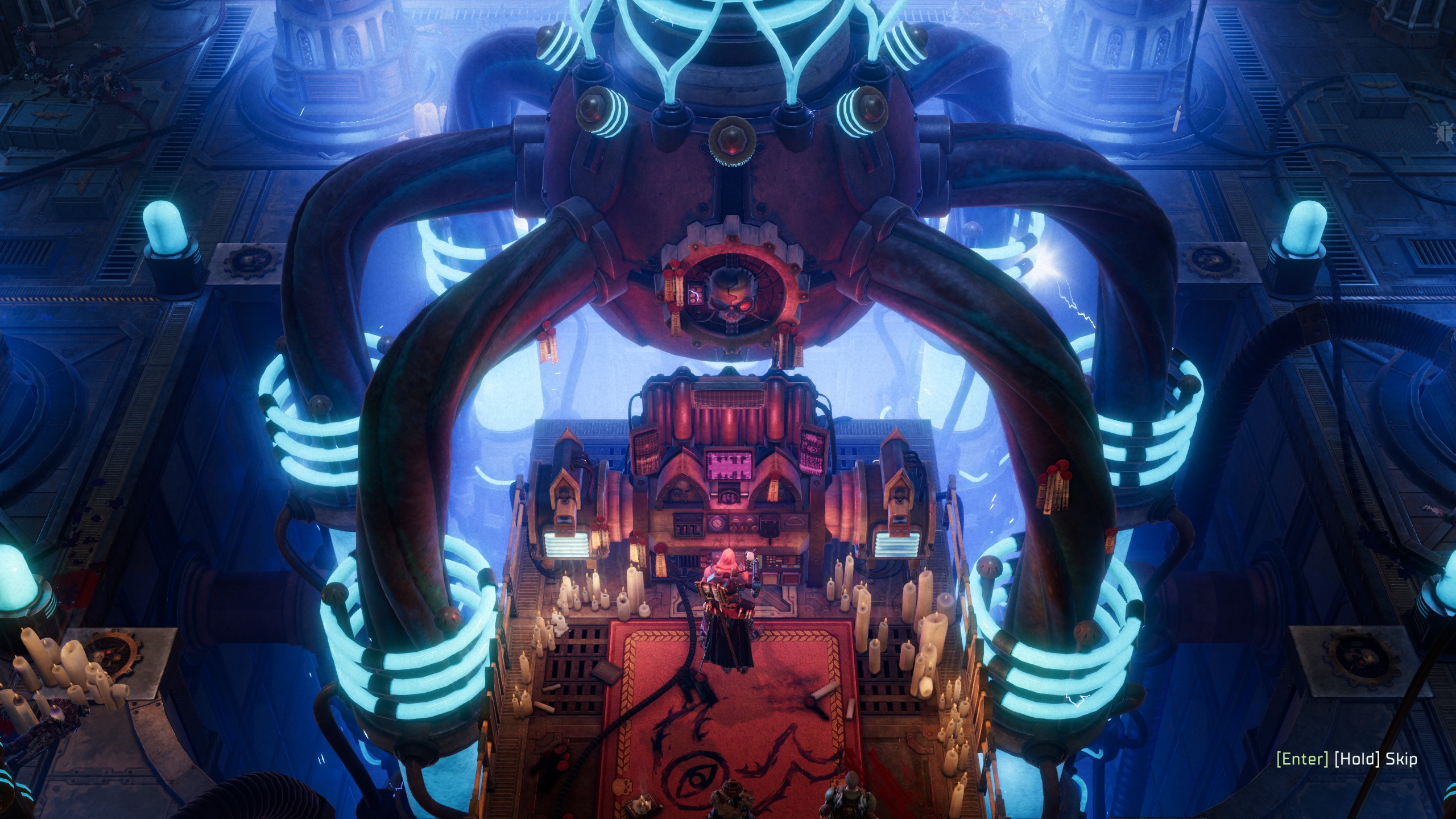
In moments like this, Rogue Trader nails the dystopian satire of Warhammer 40,000's Imperium. There's a sidequest about document approval climaxing in a queue that some people have been waiting in for days, and which I can use my authority to subvert in underhanded ways. When I want people to know how important I am, I have a robot skull in a barrister's wig fly around announcing my presence and title. One of the entertainments at a coronation is just 'shooting prisoners'.
Subtlety is for cowards
When we wrote about our dream 40K games three years ago, my first pick was "A narrative RPG about a Rogue Trader". I got my wish, but the monkey's paw curled and it's been made by Owlcat instead of BioWare, and that means quality writing and depth balanced by questionable encounter design and overcomplicated systems. We'll get to that later on.
Rogue Traders are an ideal part of Warhammer 40,000 to make a videogame about. As a merchant/privateer/explorer in charge of a ship the size of a city with thousands of crew I'll never meet who live and die based on my decisions, a Rogue Trader is allowed to talk to aliens and skirt the edge of heresy in ways the average citizen of the Imperium isn't. You're free to navigate a deeply messed-up society without immediately being burned at the stake.
Instead, consequences manifest in a three-track morality system where the three values increase independently. You earn Iconoclast points for compassion, for pushing back against the Imperium's disregard for individuality. Dabbling in Chaos in return for power earns Heretical points, and zealously embodying Imperial values earns Dogmatic points.
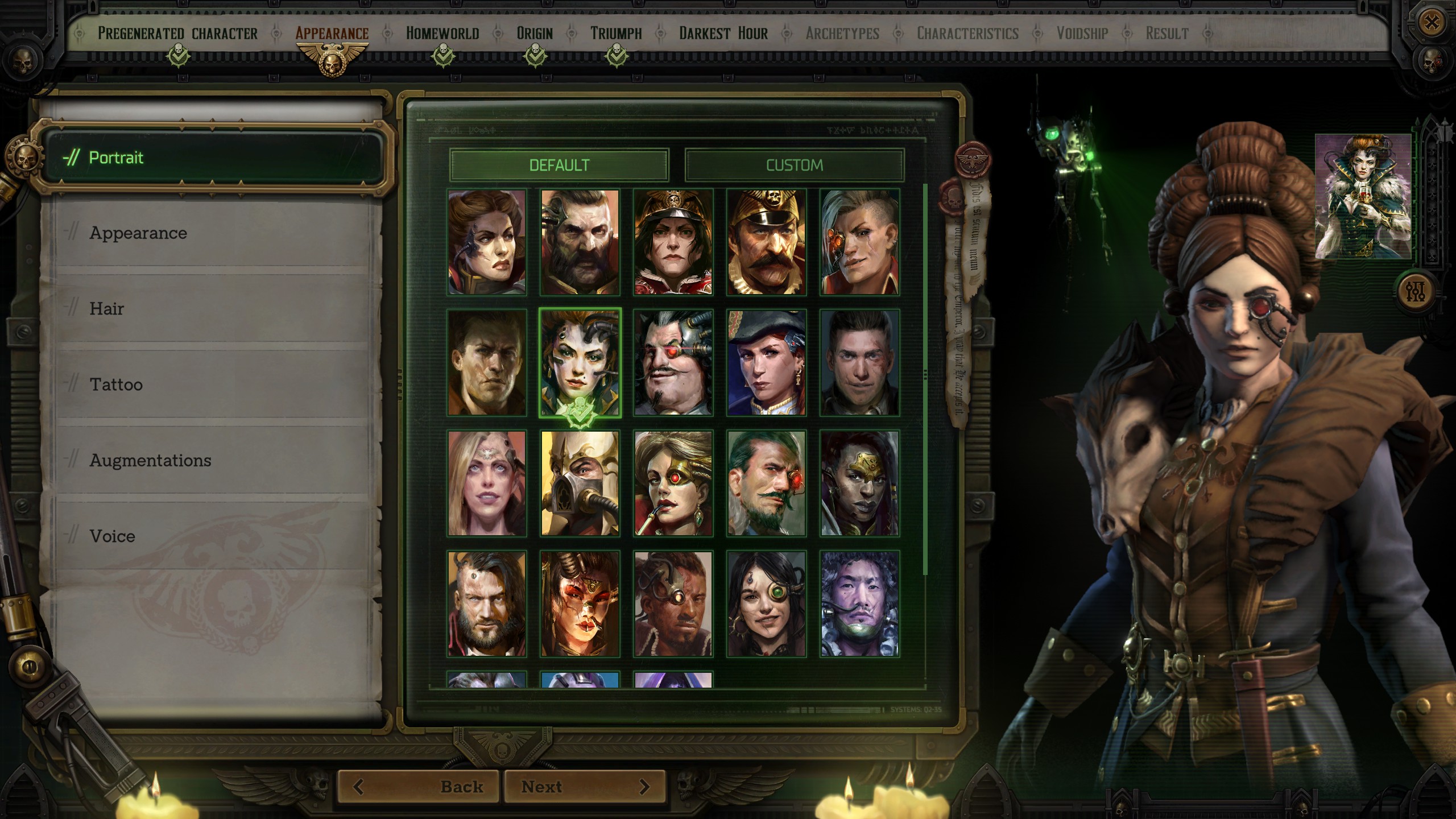
This is perfect for Owlcat. In the Pathfinder games, which had D&D's alignment system, Owlcat tended to interpret Lawful alignments in a "we should kill goblin babies because they'll probably grow up evil" kind of way, which made playing a paladin a jarring experience. In Rogue Trader, that's exactly the kind of thing a Dogmatic person would say, only they'd probably insist on burning the babies just to be sure. (On my Dogmatic playthrough I unlocked an ability that means enemies who suffer a crit on the first turn of combat burst into flame, and I cause +1 fire damage.)
The Pathfinder games also had a management tier that put you in charge of a kingdom or a crusade, making world-shaping decisions. I always get invested in these systems in spite of their clunkiness, and Rogue Trader has the best yet. Building a network of colony worlds means working up a tree of projects for each of them, like researching Ergonomics for the overcrowded mining planet, which means that the convicts who work there will, between shifts, be tranquilized and put in pods. Rewards for these projects include boosts to my Profit Factor and the occasional item, but aren't so game-changing you'll feel obliged to micromanage. It's OK to engage with them superficially if you don't want the hundred-hour playtime to balloon even further.
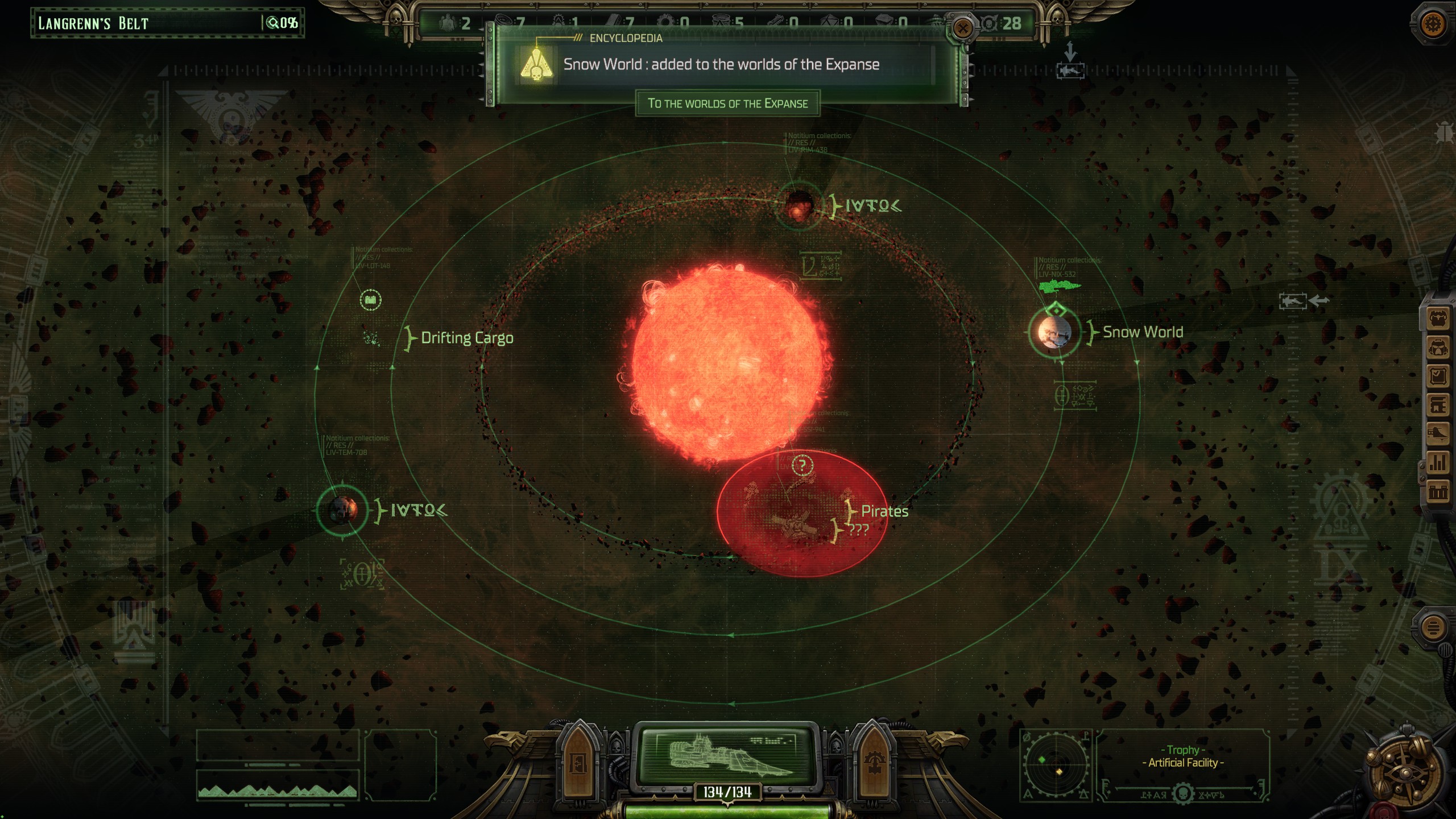
There's also space combat, which treats void cruisers like sailing ships that fire broadsides at each other while turning in arcs on a flat 2D plane, as in the tabletop game Battlefleet Gothic. It's great, and assigning companions to the stations of my ship gives me access to a manageable number of special abilities on cooldown, like making a short-range warp jump to hop ahead five spaces or choosing one of my ship's four void shields to reinforce each turn.
It does get unwieldy once the number of enemies goes up, with a fight against six light cruisers who each fart out a cloud of bombers at regular intervals really dragging on. It doesn't help that space battles don't end immediately when the cruisers are taken out and instead I have to mop up every last fighter and torpedo, or wait for them to detonate. But for the most part spaceship combat is an enjoyable change of pace and a huge improvement over both the tabletop Rogue Trader RPG's rules and the large-scale wargame Owlcat designed for Pathfinder: Wrath of the Righteous.
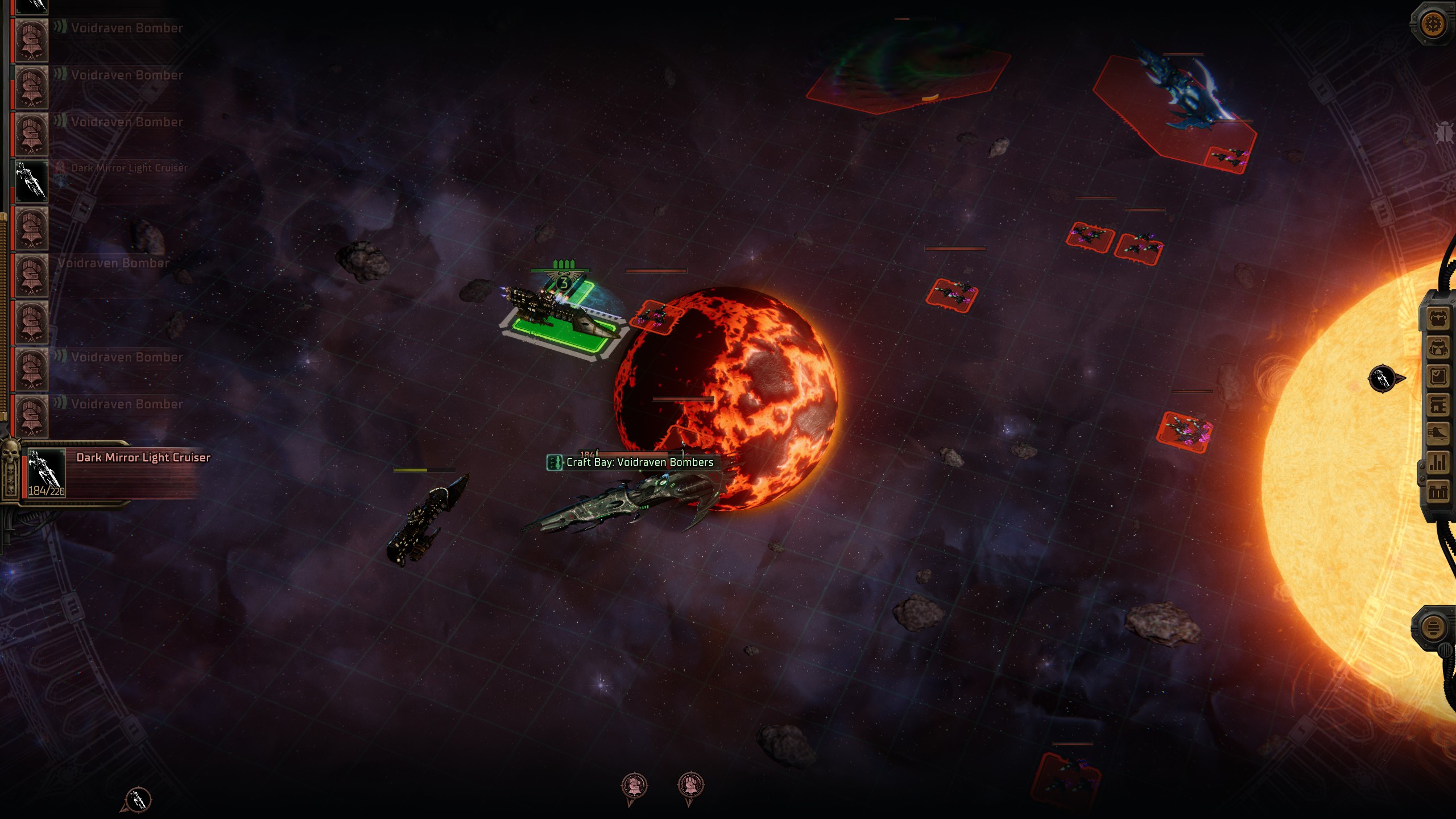
Stranger things happen at warp
Exploration is the other layer of Rogue Trader's management cake, framed as remapping the Koronus Expanse after warpstorms alter the jump routes through the system. Since intersystem travel in 40K means stepping into a universe where howling daemons devour souls and strong currents of emotion manifest as demigods, that's an interesting time. Once I recruit a Navigator I can spend the occasional point, earned by making discoveries, to upgrade the safety of a route, but most of them are risky and result in spooky narrative events.
These text adventure interludes have a dream-like vibe, with consequences including random body-swaps and unexplained phenomenon. A few too many of the events just result in a fight with daemons and zombified or rebellious crew somewhere on the ship, but when they're creepy paragraphs that end with several hundred crew lost or another section of the ship being sealed off forever and us just continuing on because we must, they remind me of Sunless Sea in the best way.
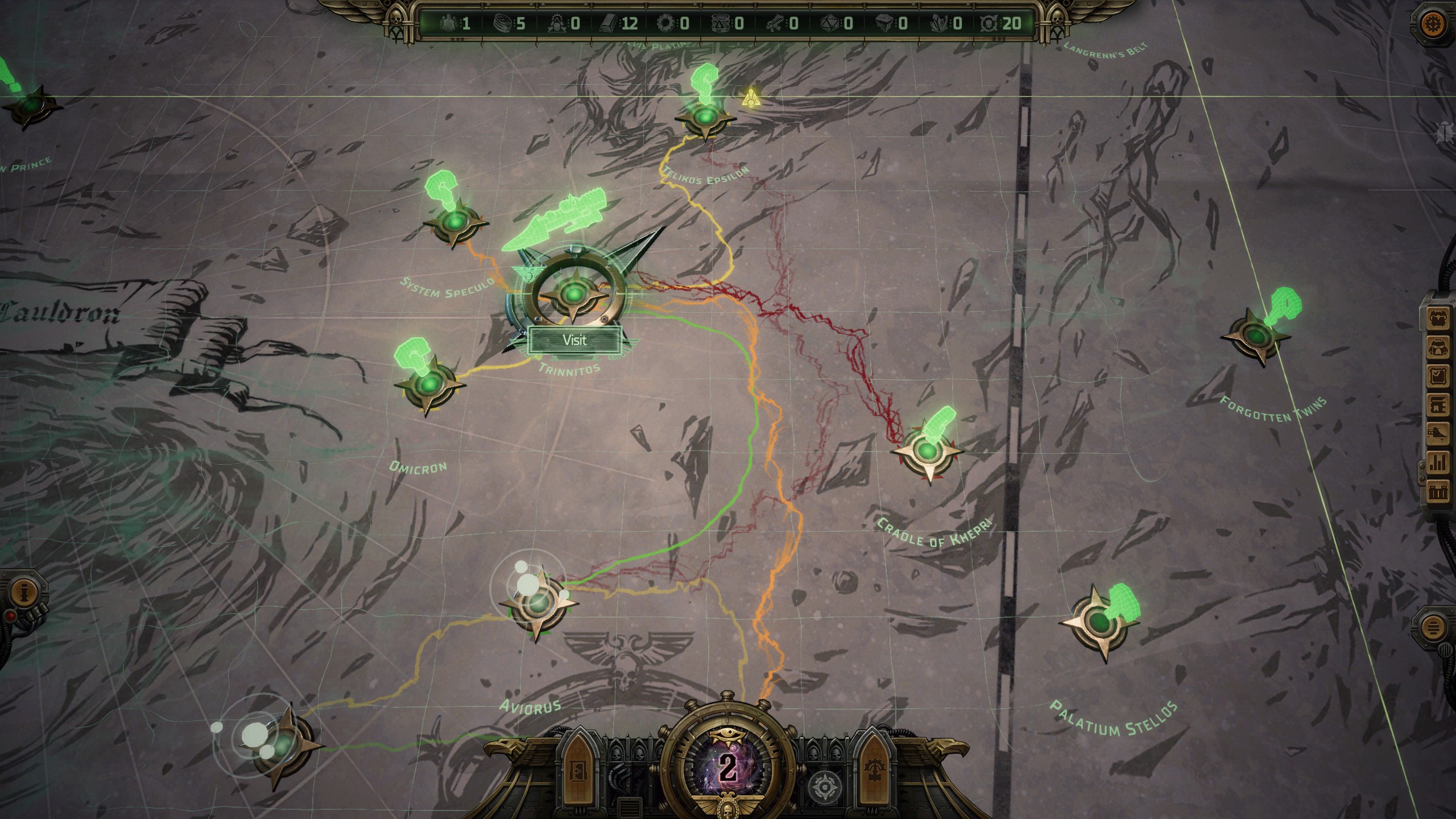
Rogue Trader is loosely based on a tabletop RPG that Fantasy Flight Games published, but where Owlcat's Pathfinder games tried to recreate their tabletop inspiration with relative faith, here they've almost completely rewritten the rules. That's made spaceship combat better, but the squad-level combat where you and five of your companions have turn-based tactical battles with rebels, daemons, and xenos have gone the other way.
Everyone has action points that let them activate abilities, only one of which per turn can be an attack (except if you've got an ability that lets you break that rule, of which there are several). Many are buffs and debuffs or designed to be used in combination with other abilities. Operatives get an ability that lets them analyze targets to pile "exploits" on them, then other abilities that either strip those exploits away to reduce armor and gain a bonus to hit, or give allies the power to strip exploits when they attack and gain bonus damage.
A handful of abilities like this can be flavorful and make for interesting decisions, but in Rogue Trader everyone has a laundry list of them, all providing percentile bonuses. I've specialized my tech-priest into a grand strategist who designates three zones of the battlefield at the start of every fight, which each give different bonuses to allies and penalties to allies who stand in them. On subsequent turns he can shift those zones around or change what they do, in addition to managing all the stuff with exploits because he's an operative, as well as activating various tech-priest abilities with his cybernetics. It's a lot.
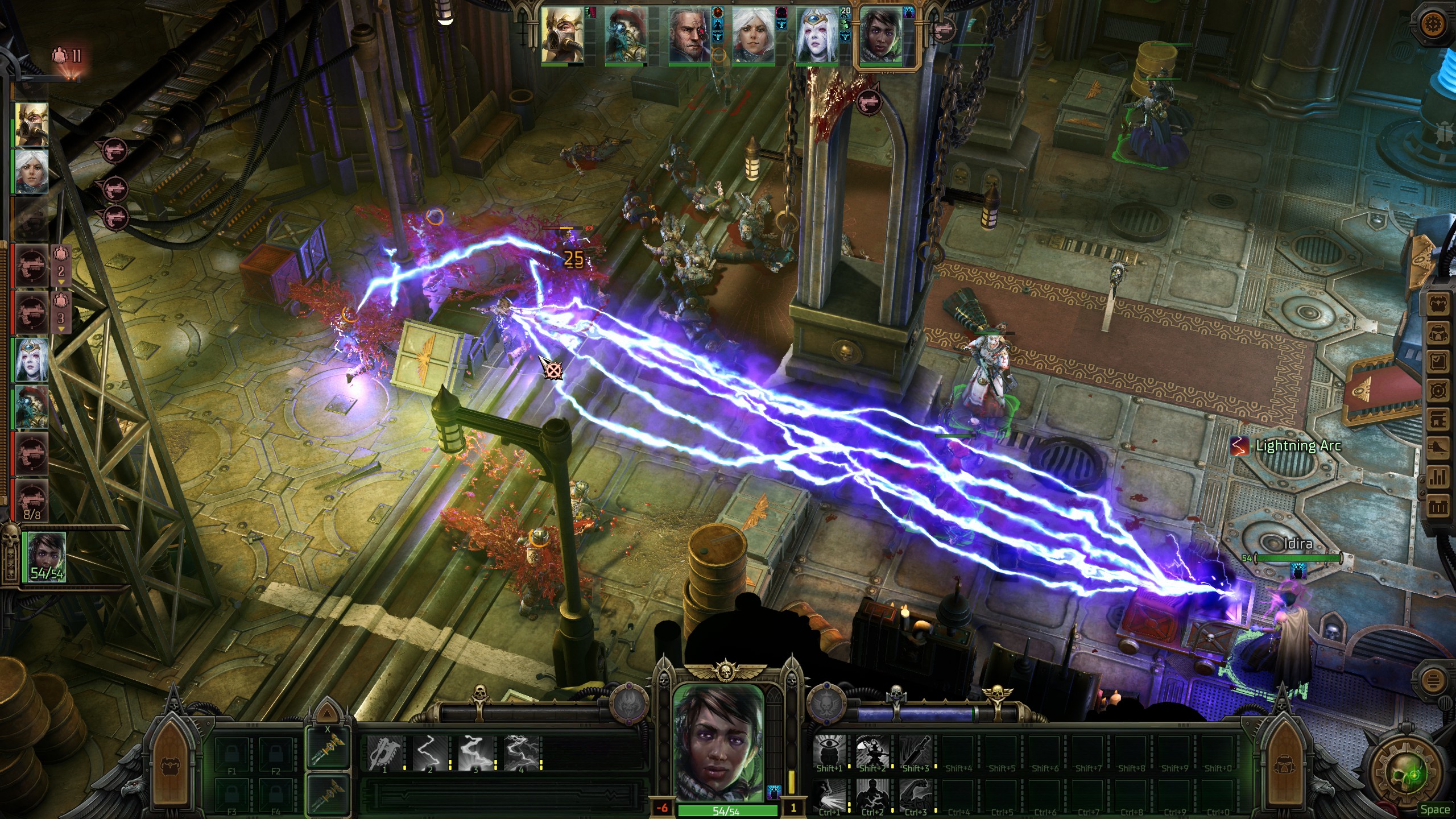
I'll huff and I'll buff
In the Pathfinder games, prebuffing was vital for the harder fights. You had to faff about before big battles casting spells to make sure you had the right resistances and stat boosts. There's none of that in Rogue Trader, and at first I thought that was a blessing. It turns out the prebuffing has been replaced by "mid-buffing", stacking abilities throughout the course of each fight to insure you've got enough momentum to activate your heroic abilities and boosting everyone's damage to deal with increasingly spongy enemies.
There are things about the combat I like. There's artful slow-mo on kill strikes that adds emphasis to the Sister of Battle's bursts of bolt-pistol fire or the psyker's lightning arcing from target to target. And using psychic powers results in veil degradation, which adds whispering voices, shadow tentacles, and other visual effects as well as random Perils of the Warp like a blastback of psychic damage or straight-up summoning a daemon.
It's just that there's a lot of combat, and most of it's boring. There's never one interesting tactical battle when there could be three samey ones to grind down your resources. And the proliferation of abilities and passive bonuses to those abilities makes character progression a chore. Everyone levels up constantly, and making decisions for the six party members plus the three or so left behind who nevertheless need to rotate in for their personal quests is absolute tedium. You'll be staring at options like adding +((50 + 10 x Ballistic Skill bonus) / number of enemies in the area of effect)% damage with an additional +(10 + 2 x Ballistic Skill bonus)% dodge reduction to your next ranged area-of-effect attack, and wondering who thought making it all so bitty was a good idea.
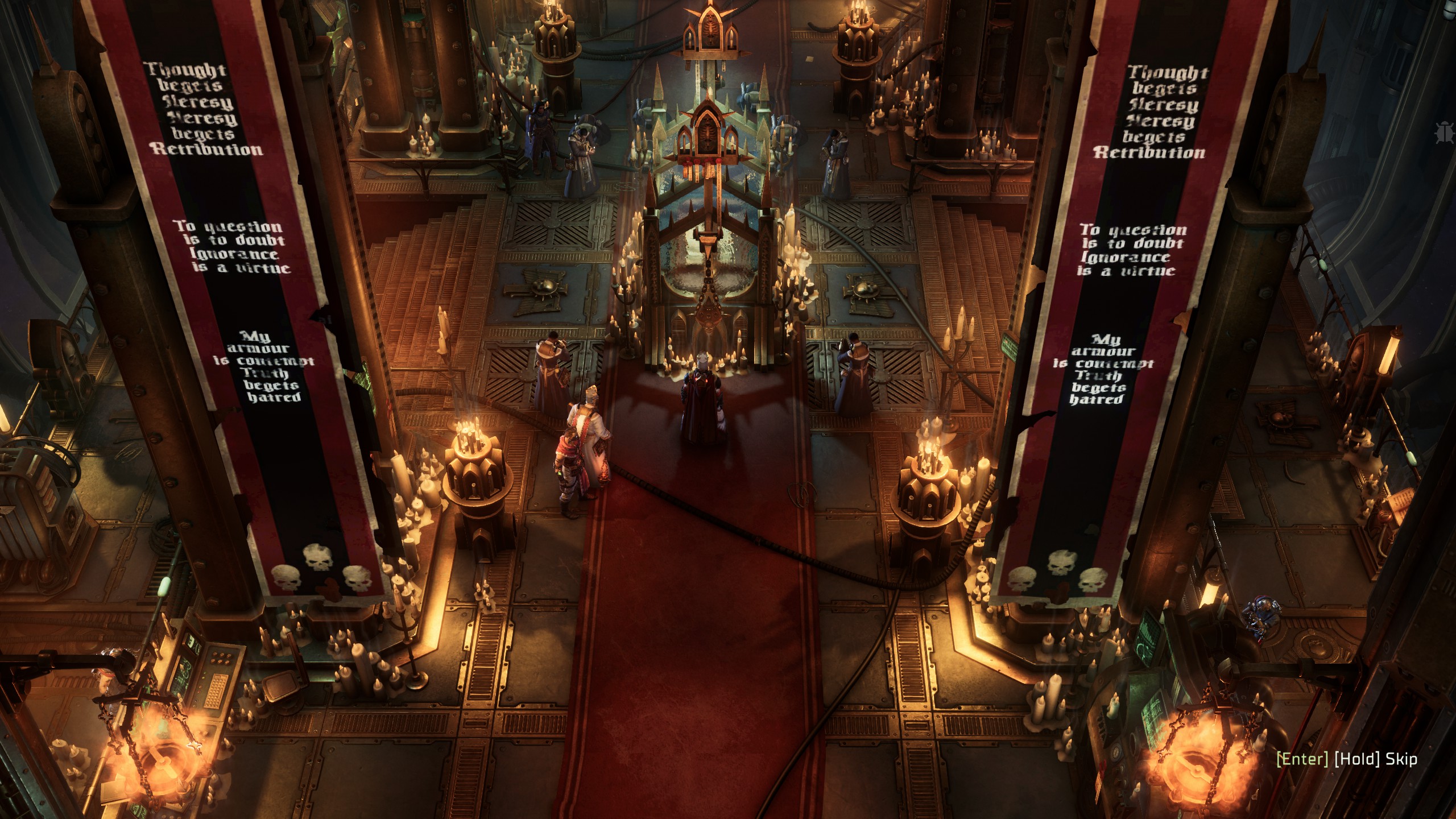
The other thing that sapped my goodwill is bugs. While it runs smoothly on my rig (and managed to run at over 30fps even when I tested it on a laptop with a 1060), I've had quest bugs and problems with the AI. I had to restart after a quest-blocking bug 18 hours in, and had characters insist I help them with problems I already solved or offer their services after being recruited. One enemy ran back to the beginning of the map on the first turn and hid there, meaning after dealing with his friends I had to trek back in turn-based mode to finish the fight. Allies sometimes don't act on their turns, and distant enemies sometimes take a full minute to decide what they're doing. The camera doesn't always move where it's supposed to when dialogue pops up during battles, meaning I have to read it in the log after. The log reverts to Russian when describing Perils of the Warp, and explains why I have to reroll successes by saying "%Reason%". Two of my combat abilities stopped working for a while, and the tech-priest's utility mechadendrites, which are supposed to give him a +10 bonus to Demolition and Tech-Use, instead give him a +1,020 bonus. I could go on.
If you played Owlcat's previous RPGs at launch, you'll be familiar with the feeling you're playing the worst version of the game. Months down the road there will be expansions that add new companions, a version of the Toy Box mod full of quality-of-life improvements, and a fleet of bug fixes. Given that Kingmaker had an entirely new turn-based combat option patched in after launching with realtime-with-pause combat, it's not impossible that Rogue Trader could get a significant overhaul. Until then, keep the parade on hold.
.jpg?w=600)






